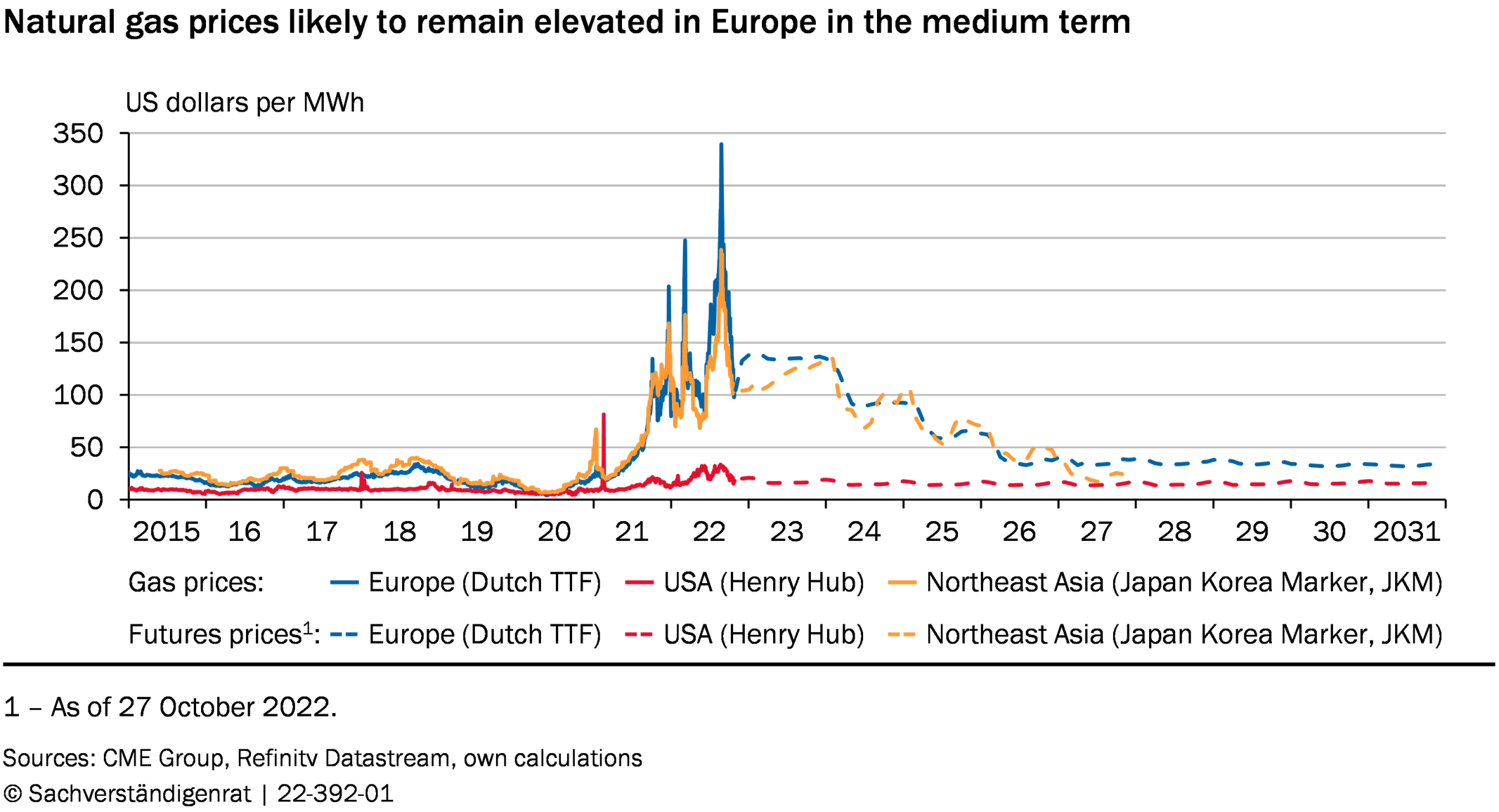- Energy prices will fall again in the coming years, but will not return to pre-crisis levels.
- This will accelerate the ongoing structural transformation driven by decarbonisation. However, a broad deindustrialisation is not to be expected.
- Public support measures should not aim to maintain the status quo, but support viable companies and the transformation of industries.
- Accelerating the expansion of renewable energies will reduce companies' energy costs in the medium term and strengthen their competitiveness.
Energy prices will come down in the years ahead. However, in the medium term they will remain above the level of past years and thus above the price level in many other regions of the world.
The extent to which companies in Germany are affected by the high energy prices varies considerably. Energy intensity differs greatly not only between but also within individual sectors. While energy costs account for only about 1 % of production costs in many companies, high energy prices are a significant strain for the most energy-intensive sectors of the economy, such as the metal industry, the production of glass and ceramics, as well as the production of the most energy-intensive basic chemicals. Companies in these sectors often face competition with businesses operating outside of Europe and are therefore less able to pass through cost increases to product prices.
The current energy crisis thus increases the pressure on companies to reduce their energy intensity and accelerates the ongoing structural changes. The energy intensity of the German economy has been declining since the oil price crises of the 1970s. This was driven by two developments: Less energy-intensive industrial sectors have gained slightly in importance. And, above all, energy efficiency has increased in various industries. If the government and companies choose the right course, a broad de-industrialisation of Germany is not to be expected.
"Unlike in the coronavirus pandemic, government support measures should not aim at maintaining the status quo ante. Rather, they need to provide assistance to those companies that have a viable business model given the energy prices expected in the medium and long term in Germany and Europe," explains Monika Schnitzer, chair of the GCEE.
The availability of affordable, low-carbon energy will reduce the energy costs of German companies in the medium term and strengthen their competitiveness. This requires hydrogen imports, the expansion of renewables, investment in expanding the energy infrastructure as well as the flexibilisation of energy demand.

